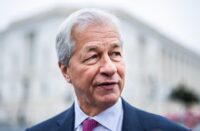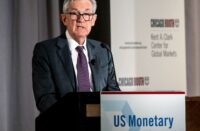Despite the seeming simplicity of stock picking, statistics from S&P Global reveal that it’s not as straightforward as it appears. After one year, 73% of active managers fail to meet their benchmarks, and after five years, this increases to a staggering 95.5%. After 15 years, none outperform.
Charles Ellis, an experienced figure in the investment industry and a proponent of indexing, doesn’t foresee this changing. The rise of passive funds has sparked concerns that it may spell the end for the active management business. Ellis dismisses these fears, however, believes that the challenge for active managers to gain a competitive edge in the market will persist.
Ellis, who appeared on CNBC’s “ETF Edge” recently, said, “The recruitment into active management continues to grow. We have an excess of talent in this area, and that’s likely to continue as it offers high rewards, fun, and the opportunity to amass a small fortune.”
Dave Nadig, an ETF industry expert, echoes this sentiment, saying that active managers are here to stay. He highlighted that last year saw the highest inflows into active management ever recorded. However, he also noted that the majority of flows come from less experienced investors who are investing in large indexes and large target data funds.
Ellis, founder of consulting group Greenwich Associates and former board member at The Vanguard Group, is also cautious about the growth of the ETF space. He told CNBC’s Bob Pisani, “The increasing availability of ETFs and the steady decline in fees charged is definitely a positive. However, investors need to be wary of ETFs that are more beneficial to the salesperson than the buyer and those that are too specialized and narrow.”
His latest book, “Rethinking Investing – A Very Short Guide to Very Long-Term Investing”, warns of the potential risks that come with success. He is particularly concerned about leveraged ETFs, which can offer both significant gains and losses.
According to Ellis, investors should focus on finding the ETFs that best align with their goals and what they hope to achieve.
Nadig pointed out that technology has levelled the playing field in the markets. With everyone having access to the same or similar technology, gaining a competitive edge is challenging. He said, “Active management is possible, but predicting it in advance is impossible.”
Ellis further explained, “The paradoxical reason that active managers underperform is that they’re all so skilled at what they do, they negate each other’s efforts.” With the widespread access to computational power and quantitative models, he likens it to playing poker with all the cards face up.




